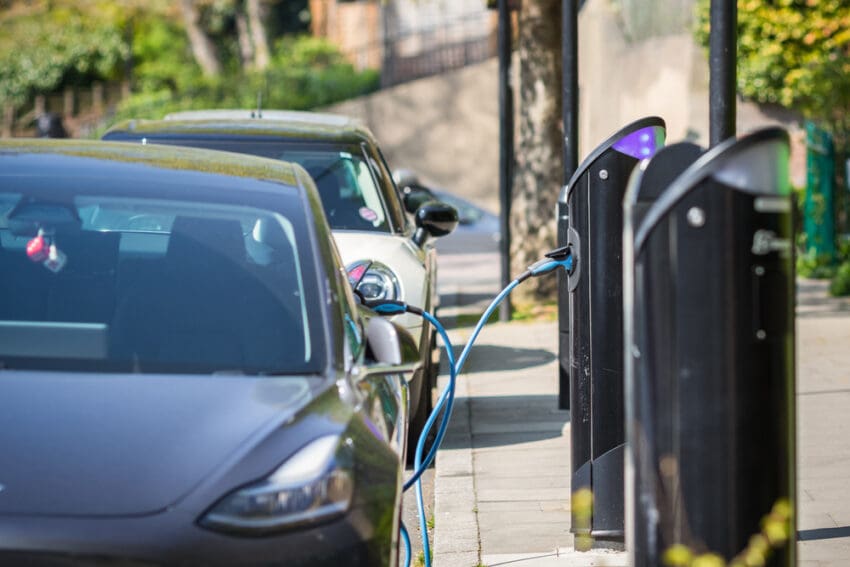
1 in 3 councils still have no plans for EV charger roll-out
Up to a third of UK councils still have no solid charging infrastructure strategy, according to new research.
Among those with stated strategies, authorities are struggling to meet their ambitions for charger roll-outs, with not a single council having fully implemented its plan.
Local authority-supported charging is seen as vital to meeting the government’s aim of having 300,000 public chargers in place by 2030. It is also key to helping households without off-street parking access charging to encourage EV uptake.
However, a report from charge point operator Believ found that councils are struggling. The report, which surveyed staff at 100 councils across England, Scotland, Wales in Northern Ireland found that just one in eight expected to hit their targets on time, with many blaming costs and a lack of public funding.
In 2022, Believ surveyed 100 councillors who focus on EVs. It found that 20% said their authority hoped to have local charging infrastructure rolled out within 12 months, with almost three-quarters (72%) aiming to do so within three years.
However, revisiting those councils three years on, the operator found that not a single council has fully implemented its plans and only 13% expect to do so any time soon. Almost half (47%) believe it will now take more than three years.
The survey also found that 34% of councils still don’t have a formal plan for improving charging provision in their areas and only 18% have a dedicated team focused on delivering infrastructure.
Money worries
Most (75%) cited a lack of public funding and delays in releasing cash as the biggest roadblock to progress. This is despite £57 million of Government and private funding being released in 2023, out of a total £800 million which will be released incrementally over the next three years.
Many (60%) also said that unclear planning legislation was a barrier to progress and a third said finding suitable locations was also a major obstacle.
The study revealed a growing north/south divide in England, with 42 per cent of councils in northern England lacking formal EV infrastructure plans, compared to 28 per cent in the south. In Scotland 27% had no formal plans while 20% of Welsh authorities didn’t have a strategy in place.
It also found that some authorities in less affluent areas said they could not justify the costs of implementing an EV infrastructure when relatively few people drive EVs. One councillor told the report’s authors: ““People will struggle to buy an EV. The people in this area couldn’t afford one. There’s a lot of deprivation.”
According to Guy Bartlett, Believ’s CEO, charge point roll-out has to accelerate rapidly to improve public confidence and encourage private and business buyers to switch to EVs.
The report cited Zapmap data that 16,600 new chargers had been installed since 2022 but that access was now 50% lower due to the rising number of EVs on the road. According to Believ, the number of drivers per publicly available charge point rose from 31 to 36 across the UK and from 49 to 85 in the north of England, highlighting the growing gap in provision.
Bartlett commented: “There is no doubt local authorities need more support, more resources and more manpower for the EV charging infrastructure challenges they face.
“But rather than rely on public sector funding, local authorities can look to the private sector who can plan, install and maintain charge point infrastructure at zero cost to local councils and help them benefit sooner from revenues generated.”
He added that the burgeoning used EV market – which grew 90% in 2023 – will only accelerate demand for public chargers. He said: “Last year EVs became more affordable and accessible to the 80% of drivers who buy second hand rather than new cars. They will not switch unless they are confident in the charging infrastructure, and currently, they are not.
“Without them, national and local government will struggle to achieve their net zero targets.”





